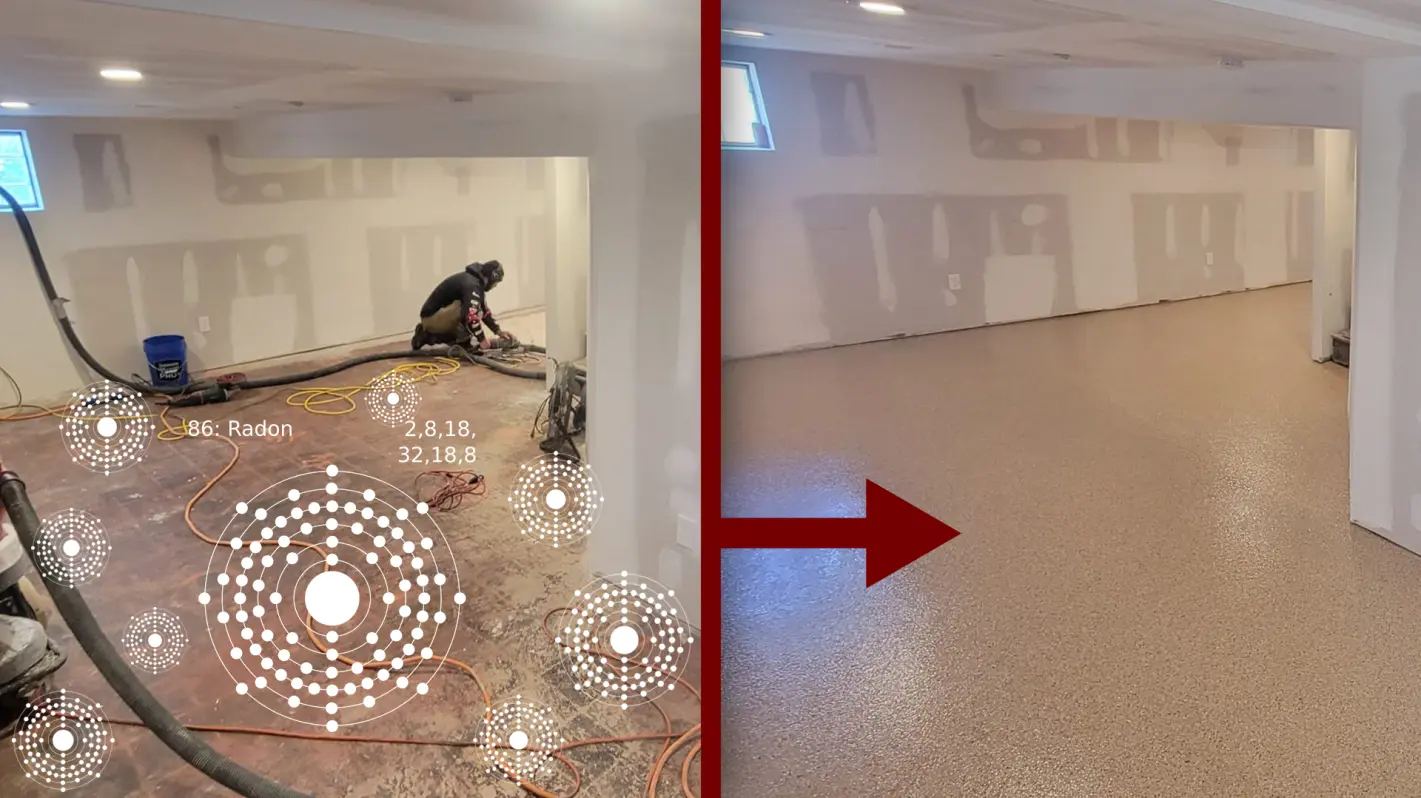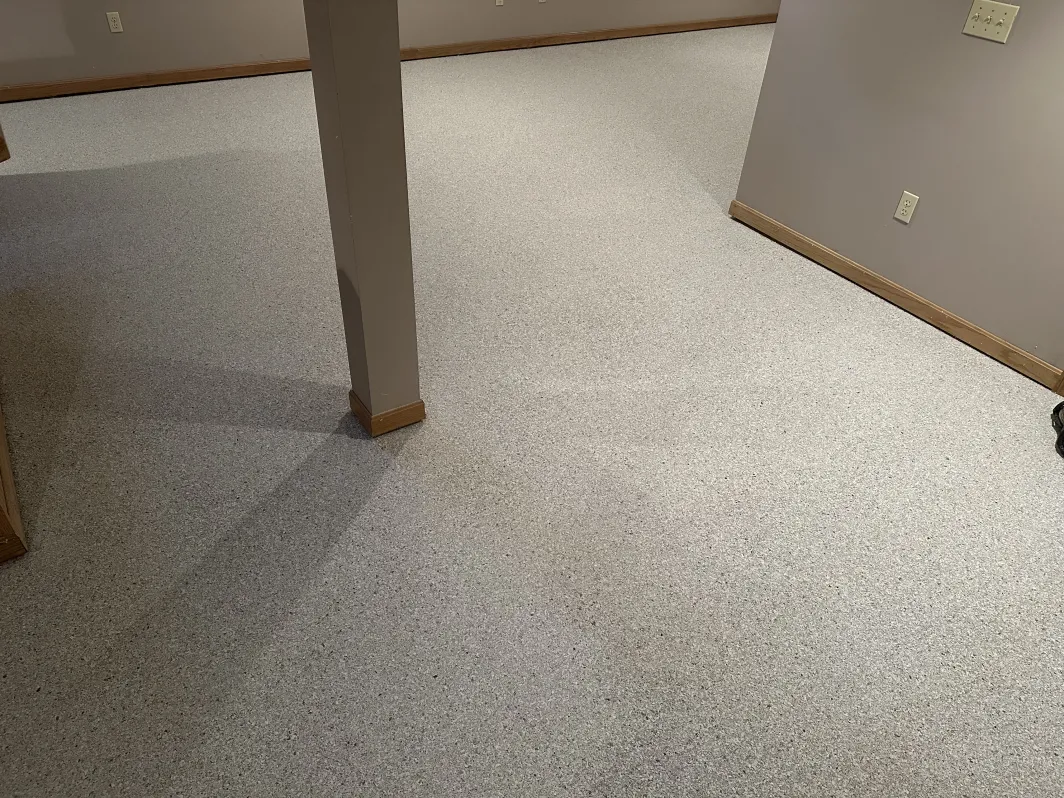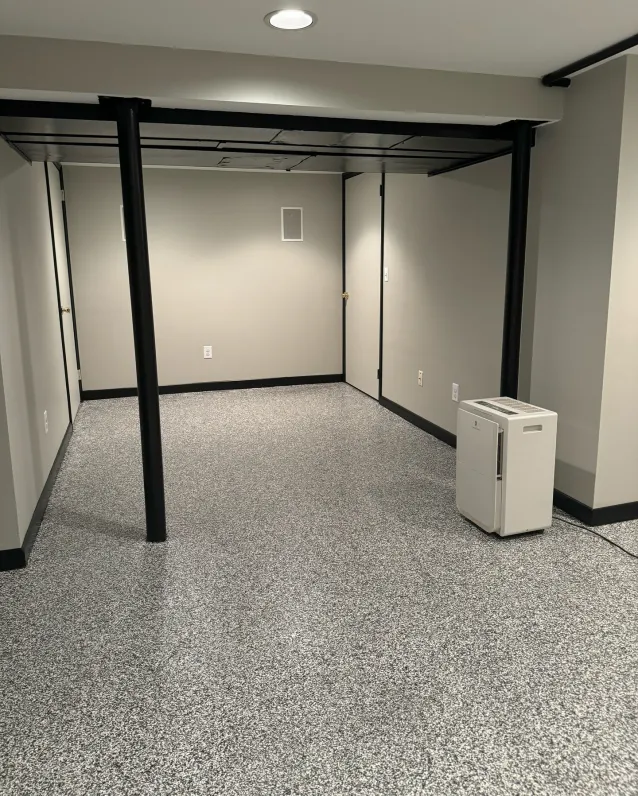Radon is a serious but often misunderstood issue for homeowners in Michigan. Many people believe common misconceptions about how radon enters homes and how to mitigate it effectively. The reality is that radon exposure poses a significant health risk, and taking the right steps to reduce it is crucial. One of the best defenses against radon infiltration are epoxy basement floor coatings. Let’s break down some of the most common myths and the realities behind them.
Myth: Radon Isn’t a Problem in Michigan Homes
Reality: Many homeowners assume that radon is only an issue in a few isolated areas, but Michigan has widespread radon concerns. The state’s soil composition allows radon gas to accumulate beneath homes, and since radon is an invisible, odorless gas, many homeowners remain unaware of its presence until they conduct a proper test. Ignoring radon risks can leave families exposed to dangerous long-term health effects, making proactive mitigation essential.
Myth: Radon Only Enters Through Cracks and Gaps
Reality: While cracks in basement floors and foundation walls are common entry points for radon, the gas can also seep through unsealed concrete itself. Concrete is naturally porous, allowing radon to move through microscopic openings and accumulate inside homes. Simply sealing visible cracks isn’t enough to stop radon infiltration. A more comprehensive solution, such as a basement floor coating, is necessary to create a strong, non-porous barrier that significantly reduces radon’s ability to enter through the floor.
Myth: A Basic Sealant Works Just as Well as an Epoxy Coating
Reality: Many homeowners believe that applying a standard sealant is enough to block radon, but these solutions tend to break down over time. Unlike temporary sealants that require frequent reapplications, a high-quality basement floor coating provides a durable, long-lasting barrier against radon infiltration. Epoxy coatings bond with the concrete surface, creating a moisture-mitigating and non-porous layer that not only helps block radon but also prevents future cracks and structural damage.
Myth: Sealing the Floor is the Only Step Needed for Radon Mitigation
Reality: While an epoxy basement floor coating is an important part of a radon mitigation plan, additional measures may be required for homes with elevated radon levels. Homeowners can conduct regular radon testing to monitor concentrations over time. If levels remain high, installing a sub-slab depressurization system can actively vent radon gas outside before it enters the home. Sealing foundation walls, sump pits, and utility line openings can further reduce radon infiltration, creating a more comprehensive defense.
Protect Your Home with Garage Floor Coating of Michigan
For Michigan homeowners looking for a proven way to reduce radon risks, a basement floor coating is a smart investment. At Garage Floor Coating of Michigan, we specialize in high-quality, long-lasting basement floor coatings that enhance durability, prevent moisture issues, and help limit radon intrusion. Contact us today to schedule your consultation and take a proactive step toward a safer home.



